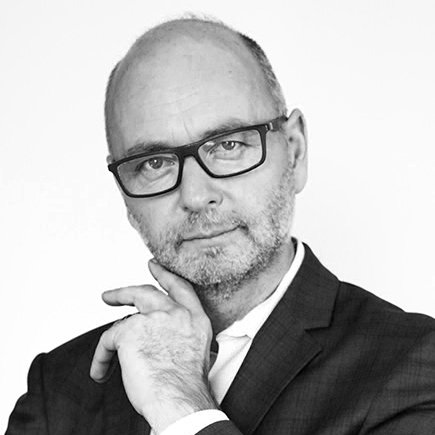 Sacha Baron Cohen speaks at the Anti-Defamation League’s Never Is Now conference in New York, Nov. 21, 2019. (Jennifer Liseo/ADL)
Sacha Baron Cohen speaks at the Anti-Defamation League’s Never Is Now conference in New York, Nov. 21, 2019. (Jennifer Liseo/ADL) Last week in New York, I was the lone son of a British Methodist amid 1,800 Jews and people of other faiths at the Anti-Defamation League’s (ADL) annual Never Is Now conference on anti-Semitism. As the leader of the USC Shoah Foundation and a scholar of genocide and remembrance, I’ve spent much of my professional life in similar settings. But the crowd at the ADL conference stood apart in a key respect: It wasn’t bound by fear, but singularly focused on action.
Don’t get me wrong: Diaspora Jewry has many reasons to fear. Anti-Semitism is on the rise and is poised to get worse. Two recent reports confirm the alarming global trend. The first, by the ADL, found that more than 1 billion people worldwide harbor anti-Semitic attitudes. The second, “The New Anti-Semites” concludes that the boycott, divestment and sanctions (BDS) movement is the “main driver of Jew-hatred on campus.” It revealed more than 100 links between Palestinian terrorist groups and BDS organizations, and demonstrated how they work in concert to pursue their goal of delegitimizing the Jewish state.
We felt the lethal dimension of resurgent anti-Semitism most acutely a year ago at the Tree of Life synagogue in Pittsburgh, where 11 congregants were killed, including family members whom I interviewed at the conference. At the Chabad of Poway, where Lori Gilbert-Kaye was slain in cold blood during Shabbat services last spring, the loss of life would have been much higher but for a jammed semiautomatic weapon. This year’s hate crime figures in the U.S. show a doubling of anti-Semitic assaults and, on average, more than 150 anti-Semitic incidents per month, the third-highest year on record since tracking began in the 1970s.
Violent anti-Semitic tragedies rightfully command our attention. But political anti-Semitism — an insidious force that often simmers below the surface — also is rising. We see it in my native United Kingdom, where a sympathizer of known terrorist organizations such as Hamas leads the Labour party. We see it in the United States, where activists such as Linda Sarsour gain a national following as an advocate for women’s rights, and then use their bully pulpit to espouse anti-Semitic views and promote antisemitic fringe organizations.
Despite this backdrop of rising hate, I didn’t hear fear in New York. I heard realism, pragmatism and activism –– I heard the future.
Ruth Westheimer, 91, an author and former sex therapist and media personality who rarely speaks about her experiences in Nazi Germany, told a packed house that she is breaking her silence to ensure that young children learn for the future. Alice Greenwald, who worked at the U.S. Holocaust Memorial Museum for almost two decades and now directs the 9/11 Memorial & Museum, had a similar message. She said that listening carefully to our past is how we secure our values.
So, too, believes Ivy Schamis, the schoolteacher from Marjory Stoneman Douglas High School in Parkland, Fla., who was teaching a class about the 1936 Berlin Olympics when the gunman entered her classroom last year. “We must not be afraid!” she said. “We must stand for who we are and stand together, from all walks of life.” Schamis has every reason to be afraid: She saw a swastika-emblazoned barrel of an AR-15-style assault rifle spray her classroom of more than 30 students, and watched two of them die. Yet she does not fear.
Schamis told me that her Holocaust class reconvened several weeks after the shooting. The students in her class now are survivors. “Was teaching the Holocaust traumatizing?” I asked her.
“On the contrary!” she replied, “We listened to the testimony of Jewish survivors who had lost every member of their family. We got perspective and healing.”
The conference’s honoree, comedian and actor Sacha Baron Cohen, who is more known for his character Borat than bravery, gave a rousing speech that took on the purveyors of half-truths and downright lies on the internet. Baron Cohen stood up for the principles of common decency, editorial standards and fair play. He was not defending the Jews; he was defending our civilization’s universal values.
I study what happened in the 1930s and how Jews reacted to Nazi persecution. European Jews were acutely aware of their circumstances. They felt the overwhelming threat and were actively working on solutions. But quite simply, it was too late. We do not live in the same time — although we should act as forcefully as if we did.
We live in a democracy; we have a free press, freedom of religion, and human rights, all of which we must use. After a Jewish cemetery was vandalized in Philadelphia in 2017, Holocaust survivor Naomi Adler told her grandchildren that when she was their age, she couldn’t go to the police or the media because both were enemies. She urged them to do both, and to never overlook the privilege of freedom.
We have much to fear but last week we set that aside and took the future into our own hands, which is precisely where our future belongs.
Stephen Smith is the Finci-Viterbi executive director of USC Shoah Foundation and UNESCO Chair on Genocide Education.























 More news and opinions than at a Shabbat dinner, right in your inbox.
More news and opinions than at a Shabbat dinner, right in your inbox.